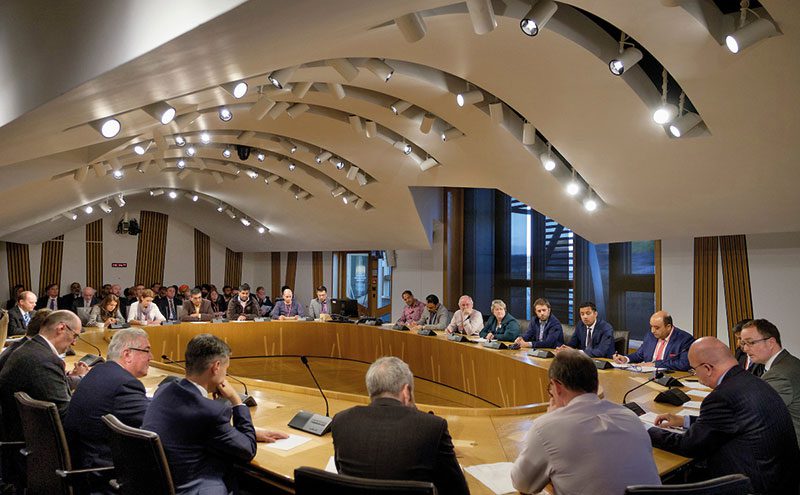
DRS was public enemy number one at the latest meeting of the Cross Party Group on Independent Convenience Stores at Holyrood.
Retailers, wholesalers and other interested parties discussed the Scottish Government’s proposal to introduce a deposit return scheme, highlighting a number of potential problems down the line.
Providing some context on current recycling rates at home and on the continent, guest speaker Andrew McCaffery, director of consulting at environmental compliance and data firm Valpak, suggested introducing DRS for drinks containers may not be an ideal solution for Scotland.
McCaffery produced a wealth of data suggesting plastic drinks bottles are already recycled at a comparatively high level, and he warned that removing drinks containers, particularly relatively valuable aluminium, from the recyclable material stocks collected by councils could reduce revenues which subsidise curbside schemes.
The Valpak director added that the volatility of the plastic price – which fluctuates with the oil price – could also leave a DRS scheme vulnerable to financial collapse and he suggested the system could also be a target for fraud.
“The trouble is the German system – which is often held up as an example as it’s got a recycling rate up at around 90% – has fraud of €100m a year, which is significant.
“Their recycling figures include fraud because they have to, you can’t differentiate them.”
JW Filshill boss Simon Hannah also weighed in on the potential problems fraud could cause, raising concerns over the cost and logistics of creating DRS-ready labelling specific to the Scottish market.
Concluding the meeting, Richard Lyle SNP MSP and member of the Scottish Parliament’s Environment, Climate Change and Land Reform committee invited McCaffery to participate in evidence sessions concerning DRS.

















